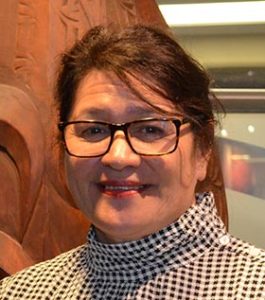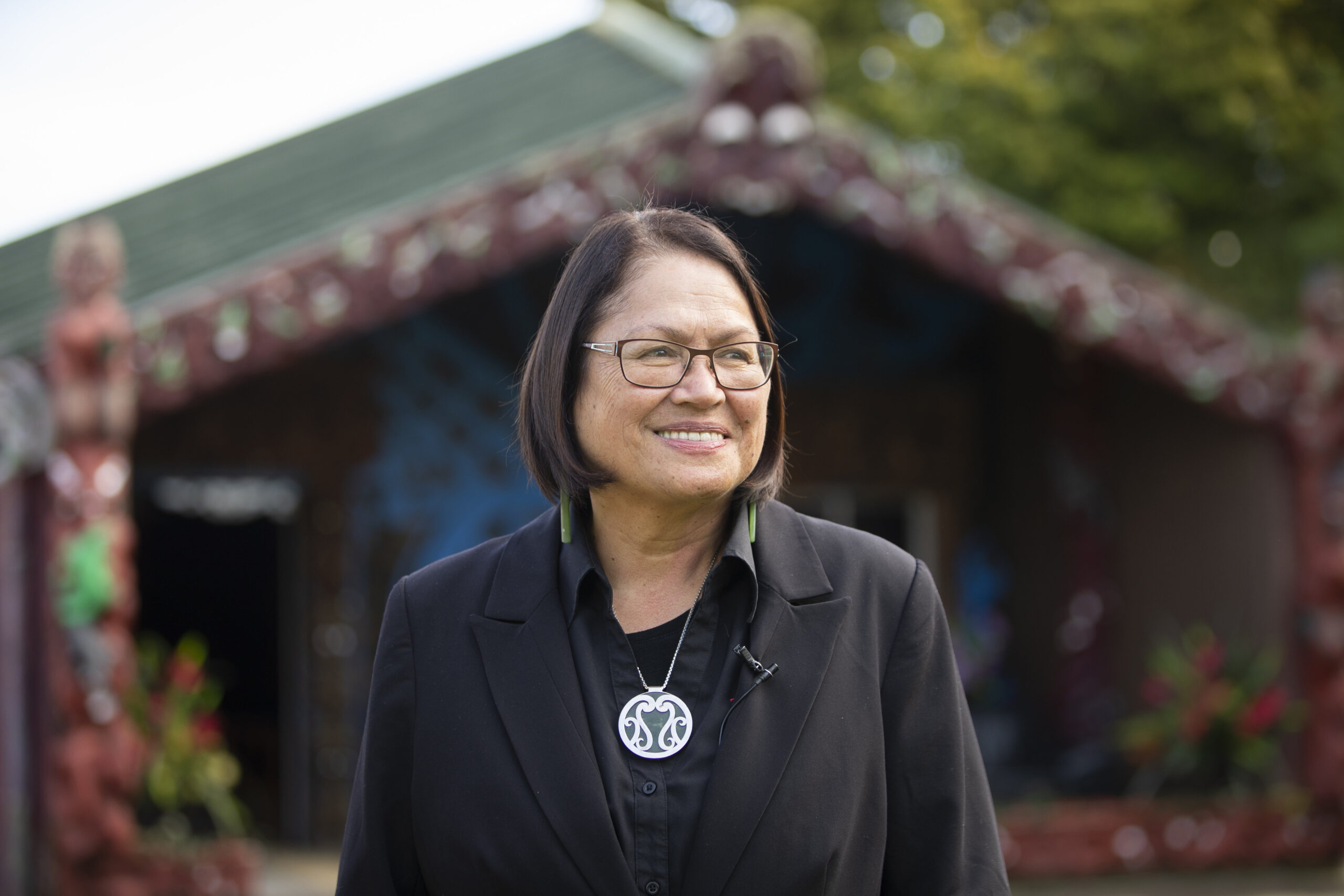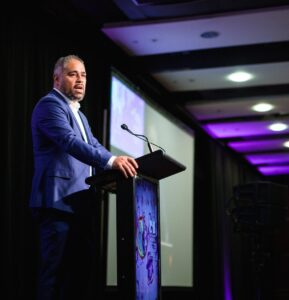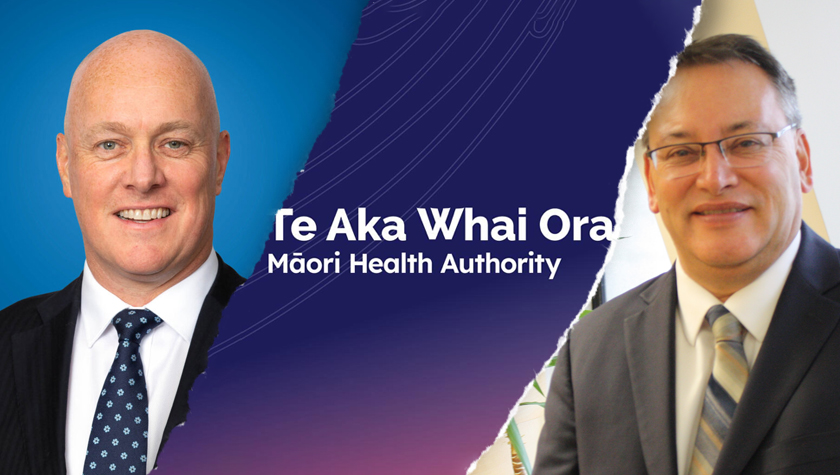NZNO kaiwhakahaere Kerri Nuku is lamenting the quick death of Te Aka Whai Ora but says it won’t stop Māori nurses seeking pay equity and safer workplaces.
‘I feel, as many did, the ground was whipped out from underneath them far too soon.’

“For NZNO, the business hasn’t changed — we’re still going after pay equity, safe working environments and, for Māori, that cultural recognition is within their pay scales,” she told Kaitiaki.
The Government has said scrapping Te Aka Whai Ora was part of its 100-day plan.
“I think they [Te Aka Whai Ora] were going to potentially develop some really great work and information we hadn’t accessed before,” Nuku said. “But I feel, as many did, the ground was whipped out from underneath them far too soon.”
Te Aka Whai Ora had some good people such as chief nursing officer Nadine Gray, Nuku said. While most would likely move into a new Māori directorate within Manatū Hauora (Ministry of Health), she was concerned health decisions — including for Māori — would now be made through a “very mainstream service”.

But she would be taking a “wait and see” approach to what Minister of Health Shane Reti has said will be health delivery closer to regions and hapori (communities) from 2025.
“I think people are hoping for the best – and what he might mean by social investment and new funding and innovation is the same as what we believe.”
‘We will hold the Government accountable for these improvements.’
Minister understands ‘grief’
Reti has said the country’s 15 regional Iwi-Māori Partnership Boards (IMPB) will play a bigger role in the health of their local population, as part of the Government’s move away from a centralised health system.
“They’re the ones best positioned to understand and represent the specific needs of their communities,” he said in a March 7 release, after a day-long hui with all IMPBs.
Reti also said he understood many were “grieving” Te Aka Whai Ora, but asked their support in delivering health care “as close to the home and the hapū as possible.
“While this particular version of that dream is laid to rest, please allow me to paint a different dream, one that I hope we can share together.”

Nuku — who is also a member of Hawke’s Bay IMPB Tihei Tākitimu — said discussions at the day had been “reassuring”.
‘While this particular version of that dream is laid to rest, please allow me to paint a different dream, one that I hope we can share together.’
“I think most people walked away feeling maybe there’s some opportunities in there to get in and be innovative,” she said. “I get the sense that this is back to . . . services closer to home – better, sooner, more convenient in a te ao Māori sort of space.”
One concern, however, was that each IMPB would be operating differently across the 15 different regions.
“Some might be taking up commissioning [health services], some won’t – some might be in a better position, some not ready yet and some might want to become service providers and others not.”
IMPBs were set up as part of the Labour-led Pae Ora Health reforms in 2022 to ensure local Māori and iwi had a voice in their region’s health plans.
Reti said he would also be taking advice from a “powered up” hauora Māori advisory committee (which includes former chief nurse Margareth Broodkoorn) over how well the new approach was working for Māori.

The roles of IMPBs and the advisory committee were complementary and Reti said he hoped the new approach would achieve “significantly improved health outcomes for Māori”.
Reti said all contracts from the 2022 Budget up for renewal this year would be extended for another year, to give “breathing space” to providers before IMPBs took over from 2025.
Te Whatu Ora hui ‘encouraging’
NZNO — Te Poari representatives met senior Te Whatu Ora leadership recently, including chief people officer Andrew Slater, chief nursing officer Emma Hickson and Te Aka Whai Ora chief nursing officer Nadine Gray. Māori members shared their experiences on the frontline and concerns for Māori health, kaiwhakahaere Kerri Nuku said.
Te Poari nurses felt encouraged by Te Whatu Ora’s willingness to listen and a commitment to continue working together, Nuku said.

Hickson said it was a very positive hui and Te Whatu Ora was grateful for the opportunity for whakawhanaungatanga (buildiing relationships) with Māori nurses.
“Nursing is our biggest single health workforce and we’re committed to working with NZNO in partnership,” she said in a statement. “We look forward to continuing to work and engage actively on this important mahi in the coming year.”
Lost data?
Nuku said one of the things lost with Te Aka Whai Ora was early collection of data on communities’ health and social issues. “We were starting to get a real understanding of our communities, and where you’d want to focus resource.”
NZNO — Tōpūtanga Tapuhi Kaitiaki o Aotearoa chief executive Paul Goulter said the dissolution of Te Aka Whai Ora as a “huge step backwards”. NZNO would continue to seek a system which improved Māori health, “grew our own” nurses and health professionals particularly Māori, and provide culturally safe health services.

“We will hold the Government accountable for these improvements”, he told Kaitiaki.
In December, NZNO wrote to Reti to protest the plan, in a joint letter with the Association of Salaried Medical Specialists.
Labour’s associate health spokesman Peeni Henare has accused the Government of abandoning Māori with its rushed dissolution of Te Aka Whai Ora.
Long-standing Māori health advocates Lady Tureiti Moxon and Janice Kuka lodged a claim in December for an urgent hearing.
However, the Government’s bill to disestablish it was passed under urgency on February 28 — a day before the Waitangi challenge was due to be heard.





